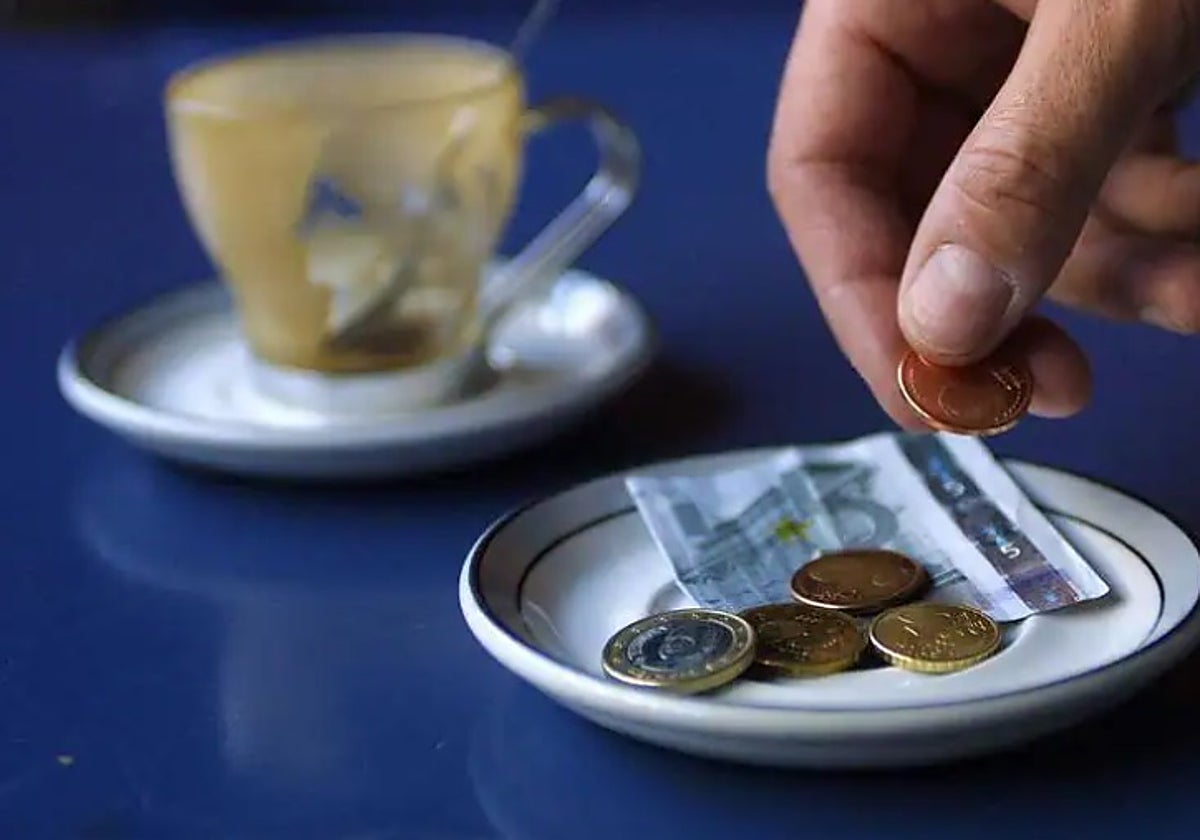Can bars and restaurants bill you for bread or a service charge, refuse cash or offer a menu only via QR code?
The Consumer Affairs department of the Junta de Andalucía has clarified the answers to these and other common questions so that customers can identify irregular and sometime illegal practices
Raquel Merino
Malaga
Monday, 6 November 2023
Imagine the scenario, you go out to eat according to the prices listed on a restaurant's menu and calculate how much the bill will be and whether it will be affordable. But ... surprise! When you get the bill, the amount is higher than you expected and you start to see amongst the string of numbers and letters a series of items such as bread, cutlery, etc., that you hadn't counted on. But is it legal to be charged for them? According to the Directorate of Consumer Affairs of the Junta de Andalucía regional government, the answer not always.
This official body points out that there are some irregular practices in the hospitality sector that consumers should be able to easily spot. And these are things in restaurants and bars which, once detected, can be the subject of a complaint to the appropriate consumer department. Here are some examples:
Is it possible to offer the menu only through QR codes?
No, the prices of food and beverages and the services offered must also be available on printed food and beverage menus, or on other physical items such as posters, blackboards or similar, which must offer the information in Spanish.
Can you charge separately for the service or the service offered?
According to the Junta, it is illegal to charge separately for an extra amount for a meal or service. The prices of off-menu products, like any other products offered in the establishment, must be detailed, clear and visible on the menu.
And charging separately for IVA, the Spanish sales tax? Or a tip?
No. Neither. Prices should be quoted in full, i.e. including IVA. And, in the case of tipping, the restaurant or bar can never force its customers to leave a tip, nor camouflage such a tip under the illegal practice of 'service charge'.
Does reserving a table involve a surcharge?
No. It is prohibited for the establishment to charge extra for reserving a table. The only thing that is permitted is that, at specific times such as Christmas, during the summer months or due to the high number of people in the establishment, they may ask customers for a deposit to formalise the reservation. However, this advance payment will subsequently be deducted from the final price paid.
What if you book on the terrace?
The Junta points out that it is legal to charge different prices for sitting on the terrace or inside the restaurant, as long as this is previously stated on the menu, in the price list and in the establishment's advertising.
Can they charge for bread or snacks?
In the case of cutlery, bread, snacks, or similar items, these may only be charged for if they are clearly and visibly specified on the menu and included in the price list advertised by the business.
What about water?
Since the entry into force of the Law on Waste and Contaminated Land for a Circular Economy, establishments must offer their customers tap water, not bottled and free of charge. They can only charge for bottled mineral water, never tap water.
On this point, the consumer affairs office points out an illegal practice. For example, if a consumer asks for tap water and is informed that he/she can only buy bottled water, this would be in breach of current regulations. Hospitality businesses must always offer the option of consuming tap water free of charge.
What does the letters S.M. mean, as sometimes appears in eating establishments?
These refer to the fact that the price of the product will depend on the market. The Junta said that this is "expressly prohibited". If the products are charcuterie, cheese or other products that can be cut from a main piece, the offers will be made to the public by weight units. In the case of molluscs or crustaceans, offers shall be made either by weight or by piece. In the latter case, the number of pieces should be indicated.
The same applies if the restaurant offers products off the menu. The national Organisation of Consumers and Users said that, at the time of offering such products, the price must also be provided. If this is not the case and the restaurant intends to charge an inflated amount, the customer could refuse to pay and propose to pay the price of a similar product from the menu.
Doubts about the method of payment
Bars and restaurants cannot refuse to accept payment in cash (the maximum limit for cash payment is limited by law to 1,000 euros). However, they are not obliged to make card payment available, but they must inform their customers of this. If paying by card, it is illegal for the establishment to charge an additional fee for the use of a particular debit or credit card.
Another issue to be taken into account at the time of payment is to make sure that the bill contains a detailed breakdown of the items consumed.
